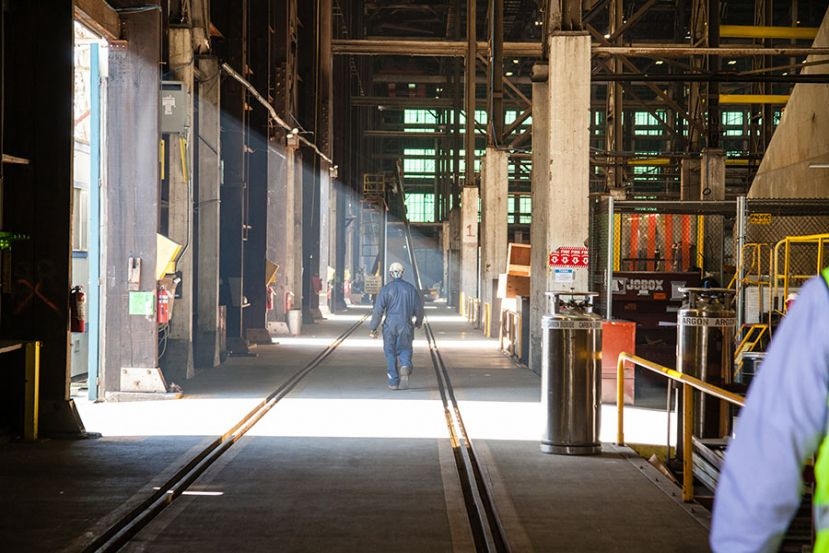Vigor Industrial’s work with community action group Neighbors For Clean Air is a model for how businesses can engage with the community to reduce concerns over air pollutants, said Department of Environmental Quality (DEQ) interim director Pete Shepherd at a City Club of Portland meeting last week.
Shepherd said companies are “well-advised” to what Vigor has done in reaching out to the community over concerns about emissions from its shipbuilding and repair facility on Swan Island, Portland.
Vigor Industrial entered a good neighbor agreement with the community action group in April this year after residents living close to the facility expressed concerns about the impact of emissions from stationary and mobile sources on people living and working in the neighborhood.
The company agreed to reduce emissions from vessels docked at its shipyard and monitor odors from its wastewater treatment operations as part of the contract. Read more about the agreement and how businesses are responding to concerns over air toxics in ‘A Toxic Tale,’ an Oregon Business story on the topic.
Shepherd was hired as the interim director of DEQ in early April following the abrupt departure of former director Dick Pedersen, who resigned in March because of “immediate health concerns,” according to the governor’s office. Pedersen was embroiled in a scandal over high levels of toxic metals found earlier this year near the glassmaking facility Bullseye Glass in southeast Portland. Shepherd took the helm as part of the governor’s ‘Cleaner Air Oregon’ program, an initiative to overhaul the agency’s regulation of industrial air emissions.
Alan Sprott, vice-president of environmental affairs at Vigor, said during the City Club of Portland panel discussion that the company learned a lot about its own facility during its work with Neighbors for Clean Air. Mary Peveto, president of the community action group, described her experience working with Vigor as positive. The company is the only example of a business that approached the group to work on reducing pollutants, said Peveto. Neighbors for Clean Air previously worked with ESCO Corporation to reduce emissions from its factory in Portland’s northwest.
As part of the ‘Cleaner Air Oregon’ regulatory overhaul, regulators will be required to factor public health risks of air toxics when they regulate emissions from facilities. Sprott said air quality has previously “never been a priority for industry to focus on.” He added the DEQ needs to set clear expectations and priorities for businesses as part of the overhaul.
The DEQ plans to come out with recommendations for its new industrial a
ir emissions regulations in November 2017. As part of the new rulemaking, regulators will reach out to underserved communities to gather input. He admitted the agency has not done a good job of engaging with the community in the past. For example, it has commonly held meetings in the middle of the day in Salem when most people are working. To address this, it plans to hold community meetings in the evening and will travel to various parts of the state to gather feedback.




